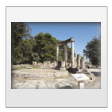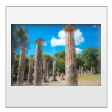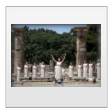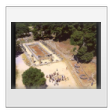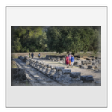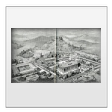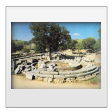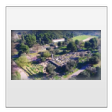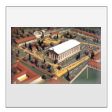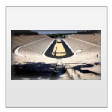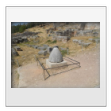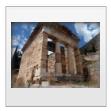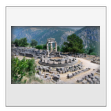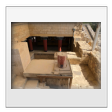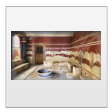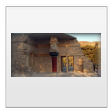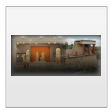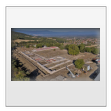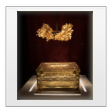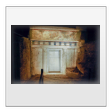
OTHER SITES OF INTEREST IN ATHENS & GREECE
Olympia & Olympic Games
The foundation of the Olympic Games is not exactly discovered yet. In myth, Apollo was the first Olympian defeating Ares in boxing and Hermes in running. Another myth claims that the Olympic Games were founded by Hercules to celebrate one of his 12 "achievements", putting his 4 brothers to compete in running. In reality, probably a local King who saw his lands being plundered by several armies, built a temple to Zeus and dedicated the area "to the Gods" declaring "Games" to honor the Gods. Thus, the area was sacred, so, who entered to plunder would be cursed by the Gods.
It was on 776 B.C. when the first Olympic Games took place in Olympia, with only two sports. Running (almost) 200m and Boxing. Every four years, the Hellenes stopped fighting, making the “Olympic Truce”, deciding to compete each other in sports, civilizing the wild instincts, celebrating ethics, culture, nature and human life. Some superhuman records took place then.
The 286th Olympic Games were the last of the Ancient era since the Ancient Hellenic culture was considered pagan and heathen by Christianity. The Sacred Olympia was sacked. Then forgotten for centuries…. Would that be the end of a tradition that lasted at least a milennia?
During the 19th Century, several archaeological excavations in Olympia uncovered the “myth”, giving flesh and bone to one of the most honorable and civilized traditions of our planet. The world was very surprised, greatly interested. Finally after several years of preparation, the first Olympic Games of the Modern Era took place, on 1896 in Athens, in Panathaenaum Stadium (“Kallimarmaro”), in the center of Athens.
.
Delfi
The ancient Oracle of Delfi and the surrounding area, built to honor mainly the God Apollo that defeated "Python", the giant snake. Pythia was the name of the female oracle that after chewing daphne leaves, was giving the oracles and "spoke" the will of the Gods to the humans. Sometimes she predicted the future so accurately that it is still difficult to understand how it was possible.
.
Knosos
In Crete, close to the city Heraclion, are the ruins of the Minoan Palace, the "base" of the Mythical King Minoas, who lived in the era of the Ancient Egyptians and created an ancient remarkable civilization. So many myths are linked to this place, the most famous of all, the myth of Minotaur (Minoic Taurus => Minoic Bull) who dwelled in the labyrinth (the word labyrinth is still of unknown origin and etymology) under the palace, killing whoever caught. Theseus, the mythical King of Athens, as Prince, went and defeated Minotaur with the help of Ariadne (the daughter of Minoas) who fell in love with him.
Another famous myth is "the abduction of Europa". Europa was the daughter of Minoas. God Zeus fell in love with her and kidnapped her by transforming himself to a bull. When Europa saw him, she rode him and he run "to the heart of Europe", thus giving name to the continent of Europe.
Bull was a sacred animal for the Minoic Civlization and there was a special sport called tavrokathapsia (tavros: bull), where the athlete, naked, had to avoid the bull with the use of acrobatic movements.
.
Vergina - Aegae
The ruins of the Palace of Alexander the Great, where the tomb and the bones of his father, Philip II were found. Philip II, a General that united Greece was assassinated during his royal ceremony. Immediately his son Alexander was proclaimed King at that ceremony. Alexander's mother, the notorious Olympia, was said to be a direct royal descendant of Achilles who fought in Troy and thus from the lineage of Hercules himself.
.
Back to WHAT WE DO
For more information
